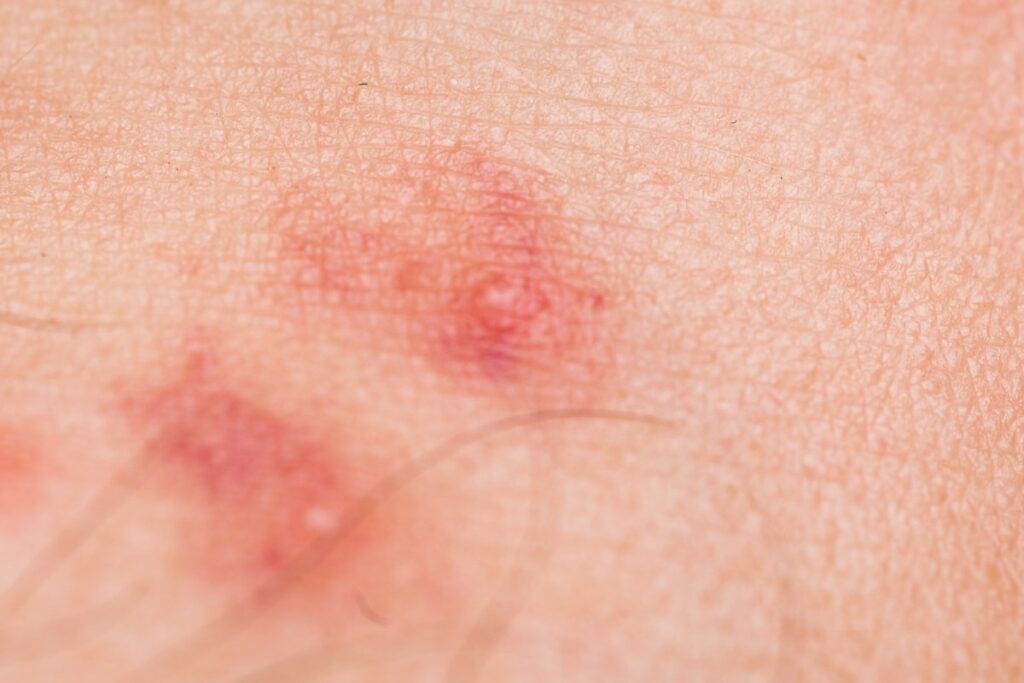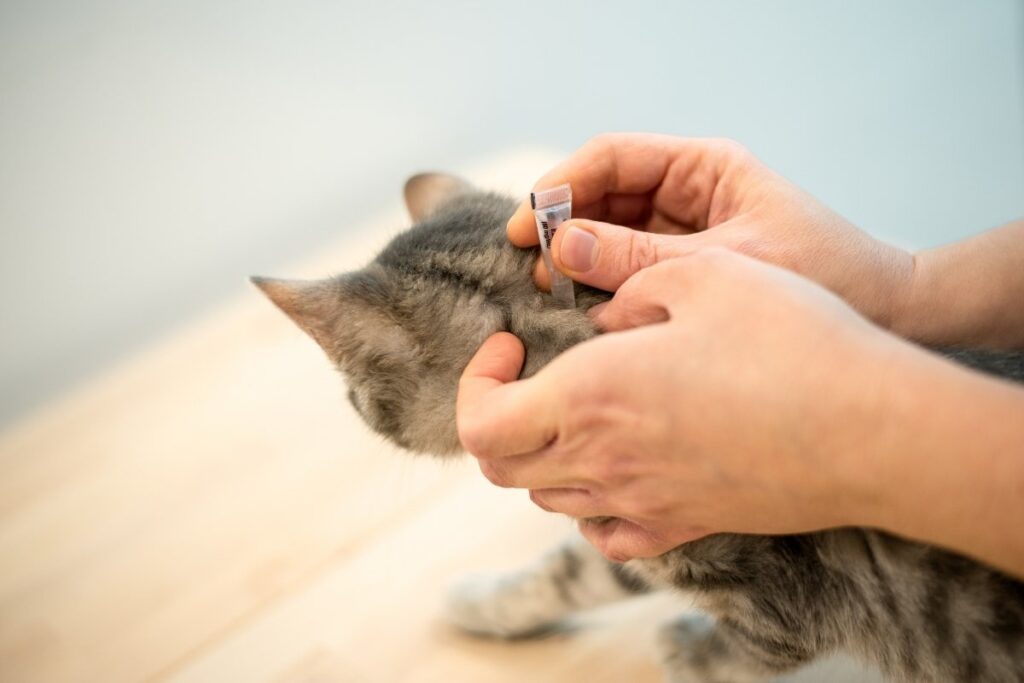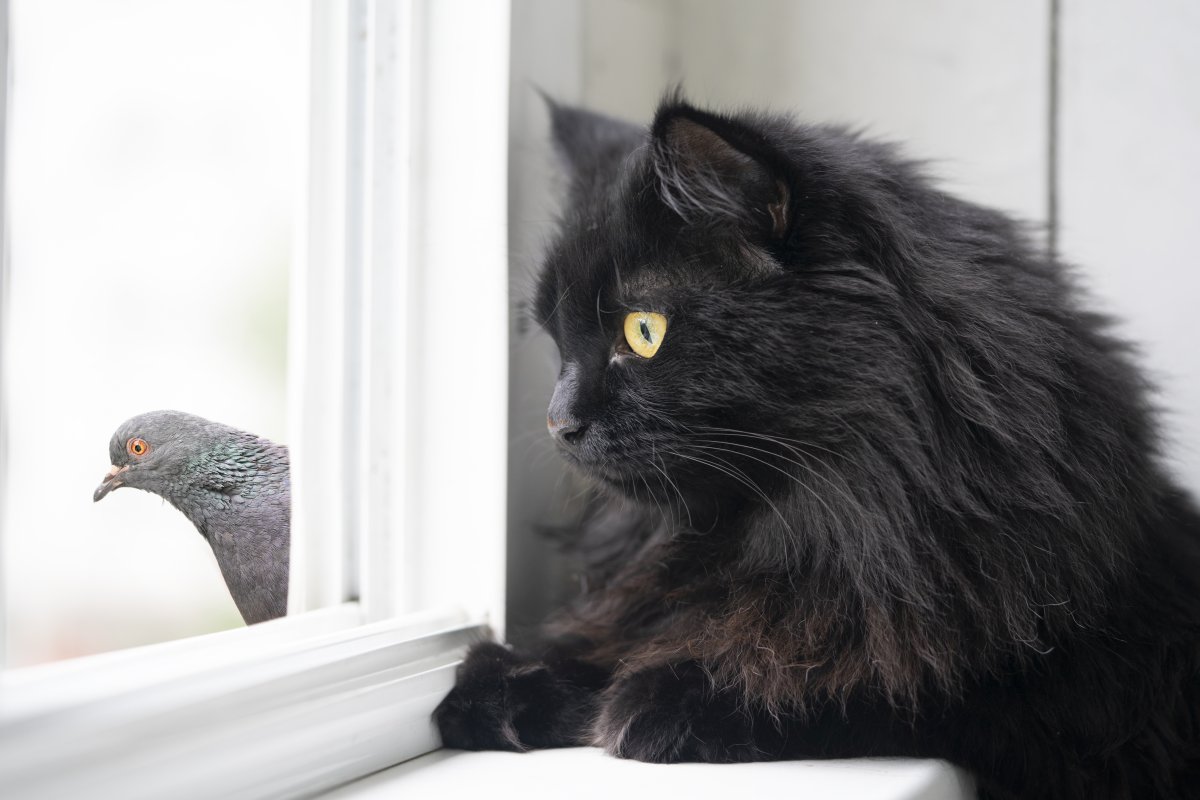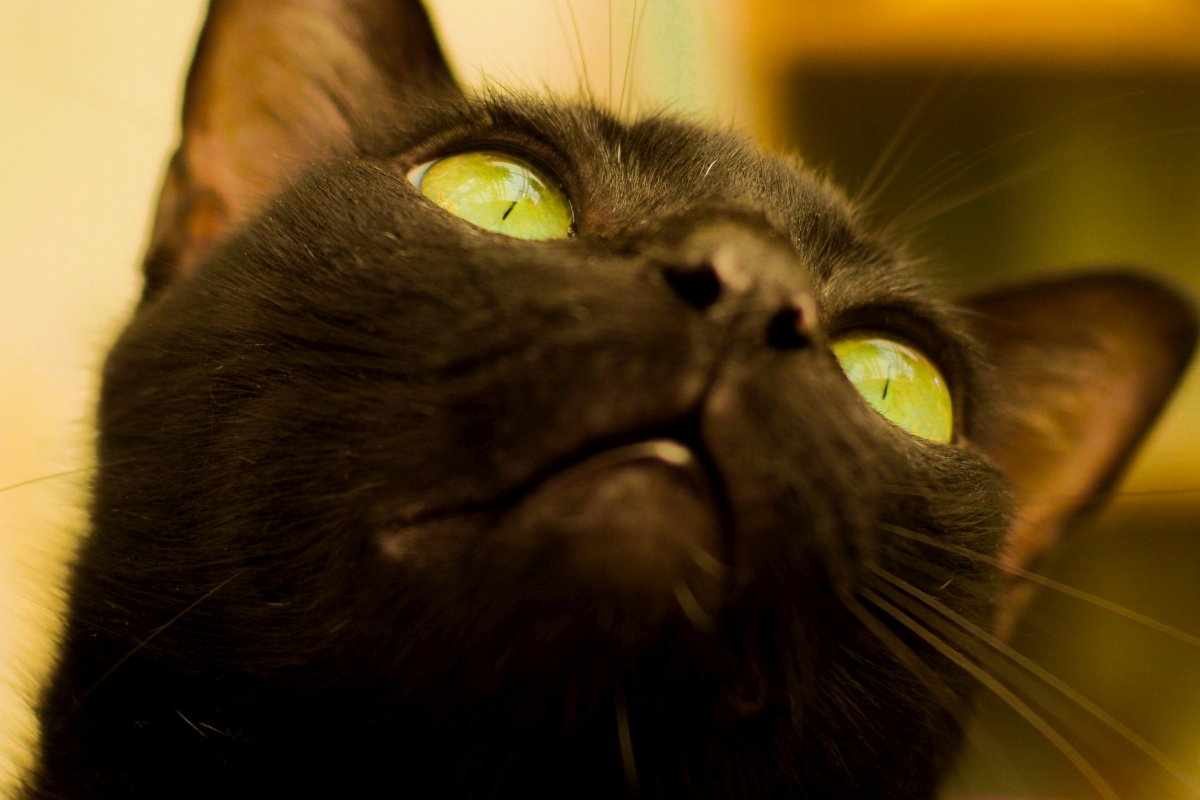Do you ever find your cat biting herself constantly or spinning around in circles unusually? You can’t see your cat suffering, and you want to check what is causing her pain. While inspecting your cat, you might have noticed tiny blood-sucking critters on her fluffy hair.
In the United States of America, cat fleas are the most common fleas that live on cats and dogs. Don’t get confused by the names because dog fleas also exist, but they are less common in the US.
Fleas can also live on birds and other warm-blooded animals such as livestock and rodents. There are 2,500 types of fleas in the world.
But why are animals more prone to fleas? Naturally, because of their fur or feathers. Fleas can easily burrow into their fluffy bodies to hide, feed, and reproduce. After going through the larva and pupa stages, they lay eggs that hatch eventually. This flea infestation cycle runs on your pet cat’s fur and must be treated.
Seeing your feline friend suffering a flea infestation, you might get emotional and want to hold your feline friend, but what if those tiny critters jump onto you? That will leave you thinking, ‘can cat fleas live on humans too?’
Can Cat Fleas Live in Human Hair?
Fleas cannot make their home in humans because they lack substantial hair, causing it difficult for fleas to reproduce without the protection of extensive hair. According to a study, fleas on humans will need to feed for 12 hours straight to get the chances of laying viable eggs, and it would be impossible for fleas to be able to feed for that long on the human body.
If your cat has fleas on her body, you are more likely to get them down at your feet, legs, and ankles. Fleas can also jump onto your body from an infested pet bed. But it is very unlikely that they will reach your hair. But what about human clothes?
Can Cat Fleas Live on Human Clothes?
Cat fleas can’t really live on human clothes, but they can stay on them for up to 24 hours, whether it is to feed or hide. They will normally get out of your clothes and find a more suitable place to live and reproduce.
How Long Cat Fleas Live on Humans?
It is significantly less common that a flea will stay on your body for a longer time. Unlike animals, humans do not have fur, making it harder for fleas to lay eggs and reproduce on a regular cycle. You can wash or scratch off the biting area before they can breed.

Do Cat Fleas Bite Humans?
Now that you know that cat fleas don’t live on humans, another question might pop into your mind, ‘Do cat fleas bite humans?’ The answer is yes; they can surely bite us.
But not every itchy red spot is caused by cat flea bites; it can also be just a spot or a bug bite. However, the following symptoms may appear on your skin when a cat flea bites you.
- You will see a small scab on the infected area with a red “halo.’
- Clusters of red bite marks are similar to mosquito bites.
- Small red marks around the big red spot.
- You will find the red spots, particularly on your ankles and legs.
Other symptoms of fleas in your household include:
- You will see black specks like ground pepper. This is the dirt of fleas, which is, in fact, their feces.
- Your pet cat is scratching more than usual.
What Disease Can I Catch from Fleas?
Fleas don’t bite but can also spread different diseases to humans.
Flea-borne Diseases
If you see any of the above symptoms, don’t ignore them! Ignoring it means your and your family’s health is at risk. Even if you get relief from the irritating bites, do remember infected fleas can spread diseases that result in severe illness, plague, and typhus. An infected person is more likely to come in contact with Bartonella, often called cat scratch disease, lying under the cat’s claws.
Tapeworm Infection
Cat fleas can pose a risk to your household because they carry tapeworm parasites. During grooming, if your cat ingests a Dipylidium caninum, she may develop tapeworm infestation.
Severe Allergy
Some people have a severe reaction to flea bites; their skin becomes itchy, swollen, and irritated. Red bumps, rashes, or hives can also appear on their skin. If you ever experience this, visit a healthcare professional.
How Can I Remove Fleas in My Home?
If your cat has caught fleas, you should consider flea control in your house. Fleas love to spend their lives in warm, hidden places such as carpets, furniture, and soft furnishing, and these are the perfect habitat for them to lay eggs.

Tips to Remove Fleas in the House:
- Vacuum regularly – Vacuum all the carpets, sofas, and rugs thoroughly, ensure to get into all the hidden places like underneath the bed, sofa, and behind furniture. Give special attention to those areas where your feline companion sleeps and plays, but cover your entire house because fleas don’t just stay in places your cat has been.
- Clean your cat’s bedding – Clean and wash your pet’s bedding separately on your own at a high temperature.
- Clean linen: Wash all other linens, including clothes, blankets, and curtains, at a preferable temperature of 60°C.
- Bring a flea spray: Use a vet-recommended flea spray to reach the areas your vacuum can’t, such as nooks and crannies.
How Can I Remove Fleas from My Cat
- It would be best to discuss the safest and most effective method for cat flea removal with your vet.
- Groom your cat with a flea comb.
- While giving a bath to your cat, leave soap on her for at least 5 to 10 minutes.
- Read and follow the instructions carefully on the flea products.
- Use medication for killing fleas as per the prescription of the veterinarian.
- Wear protective gear such as gloves when using flea removal products.
- Protect your cat’s eye, mouth, and nose while using flea removal products.
Wrapping Up
In conclusion, fleas can bite humans but cannot live on them. They live on animals and in their sleeping spaces. Flea bites cause irritation and more severe health problems that require treatment. Monitor your cat’s fleas regularly, and keep your pet and house clean to minimize the risk of a flea infestation.







